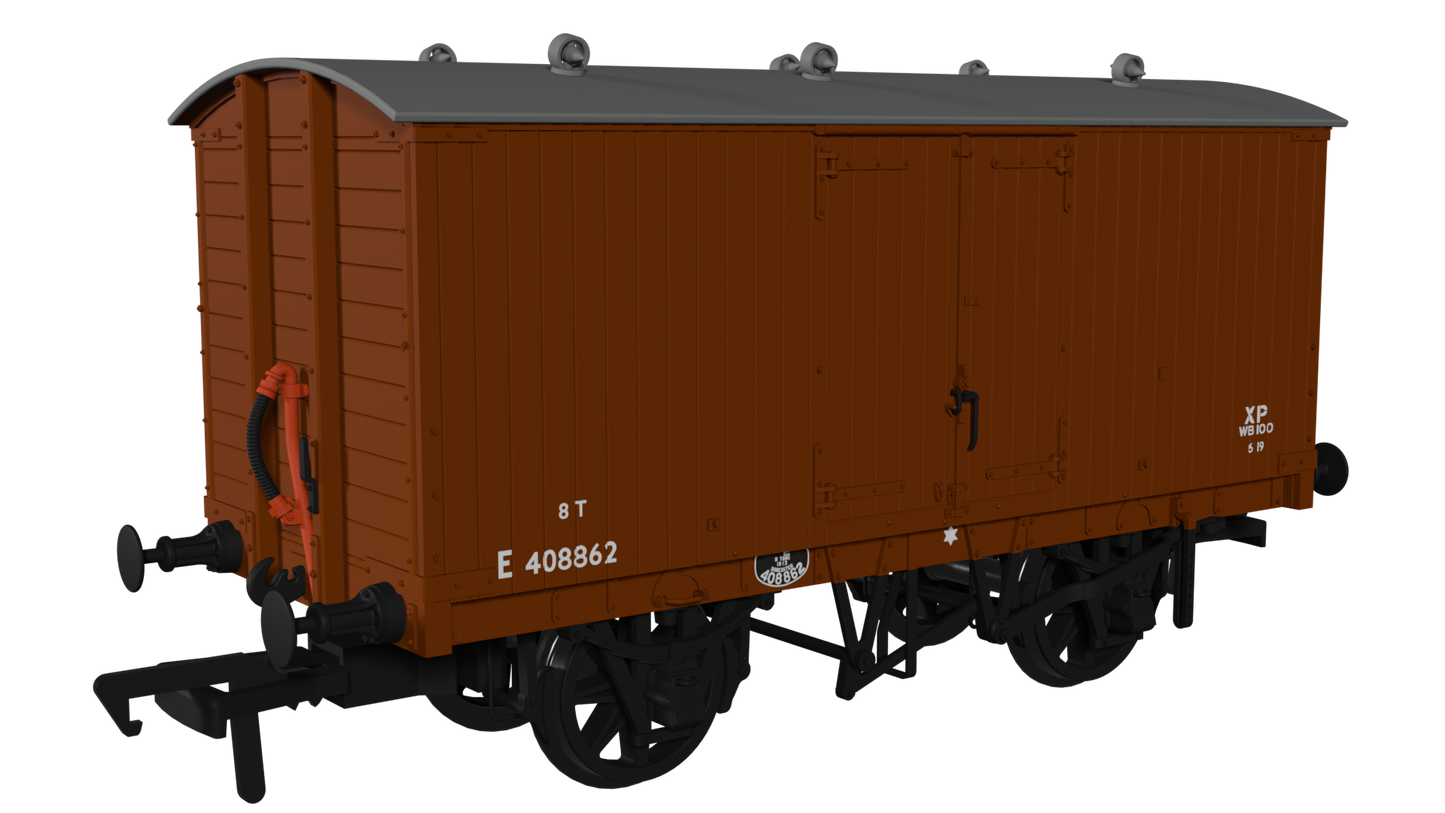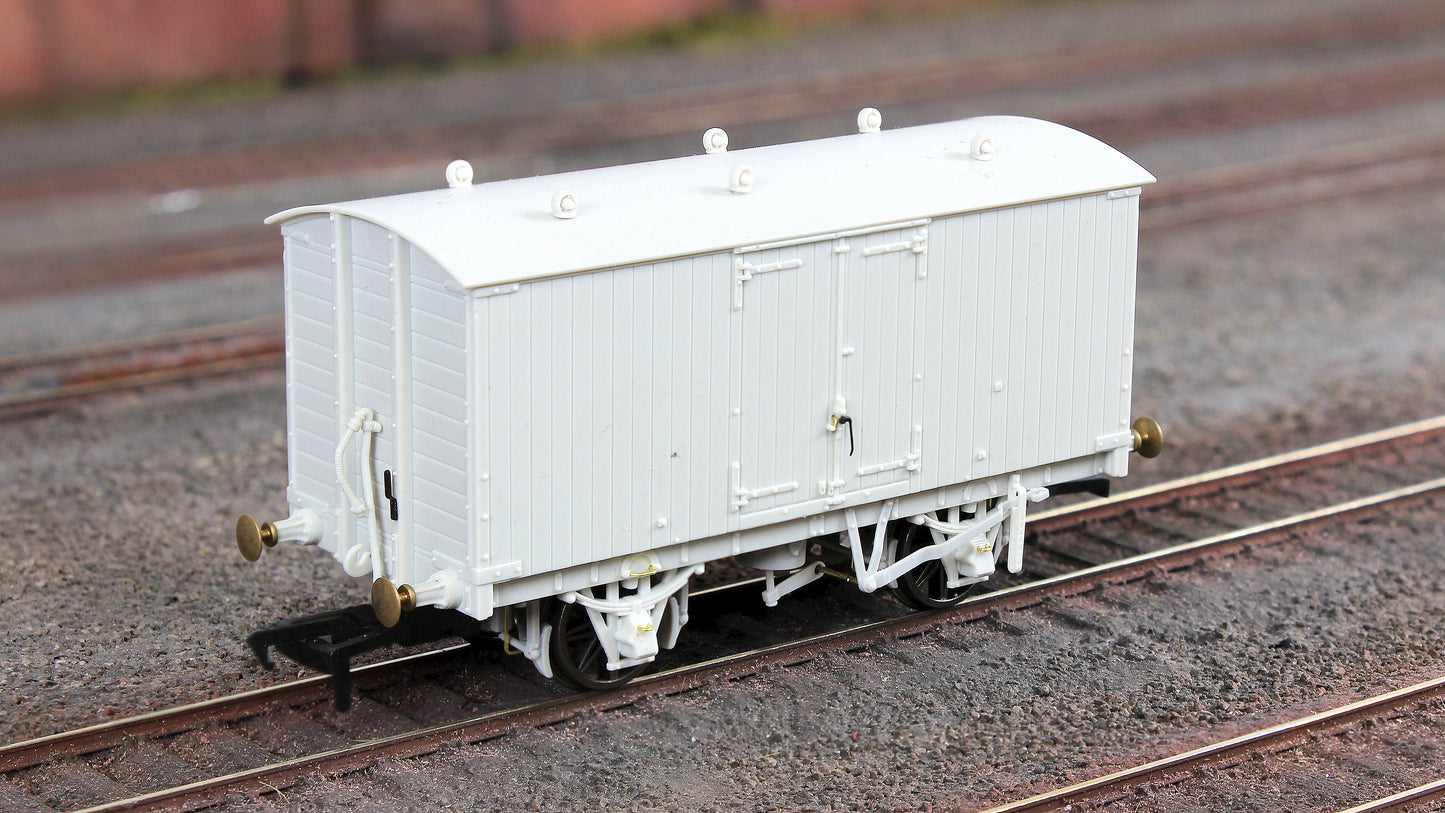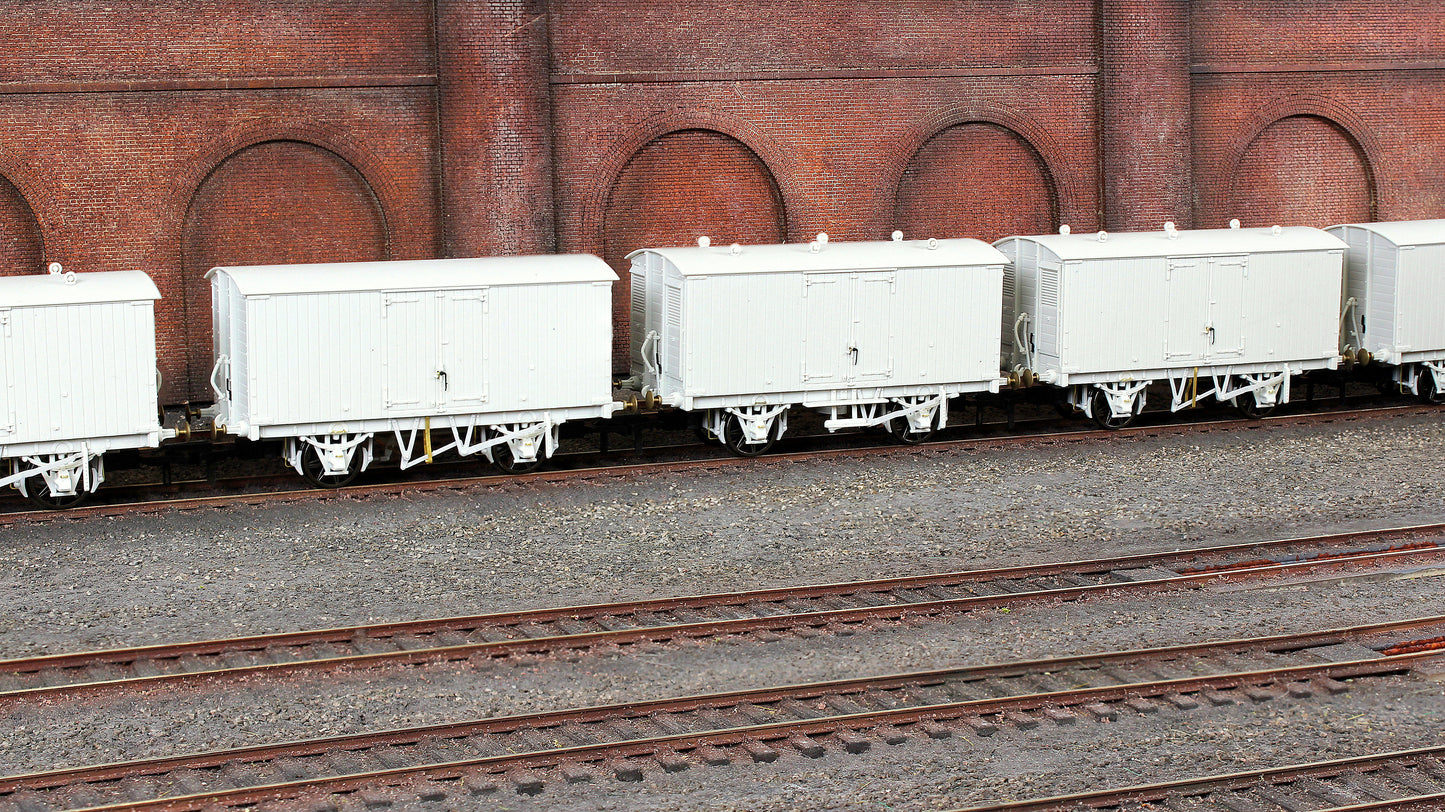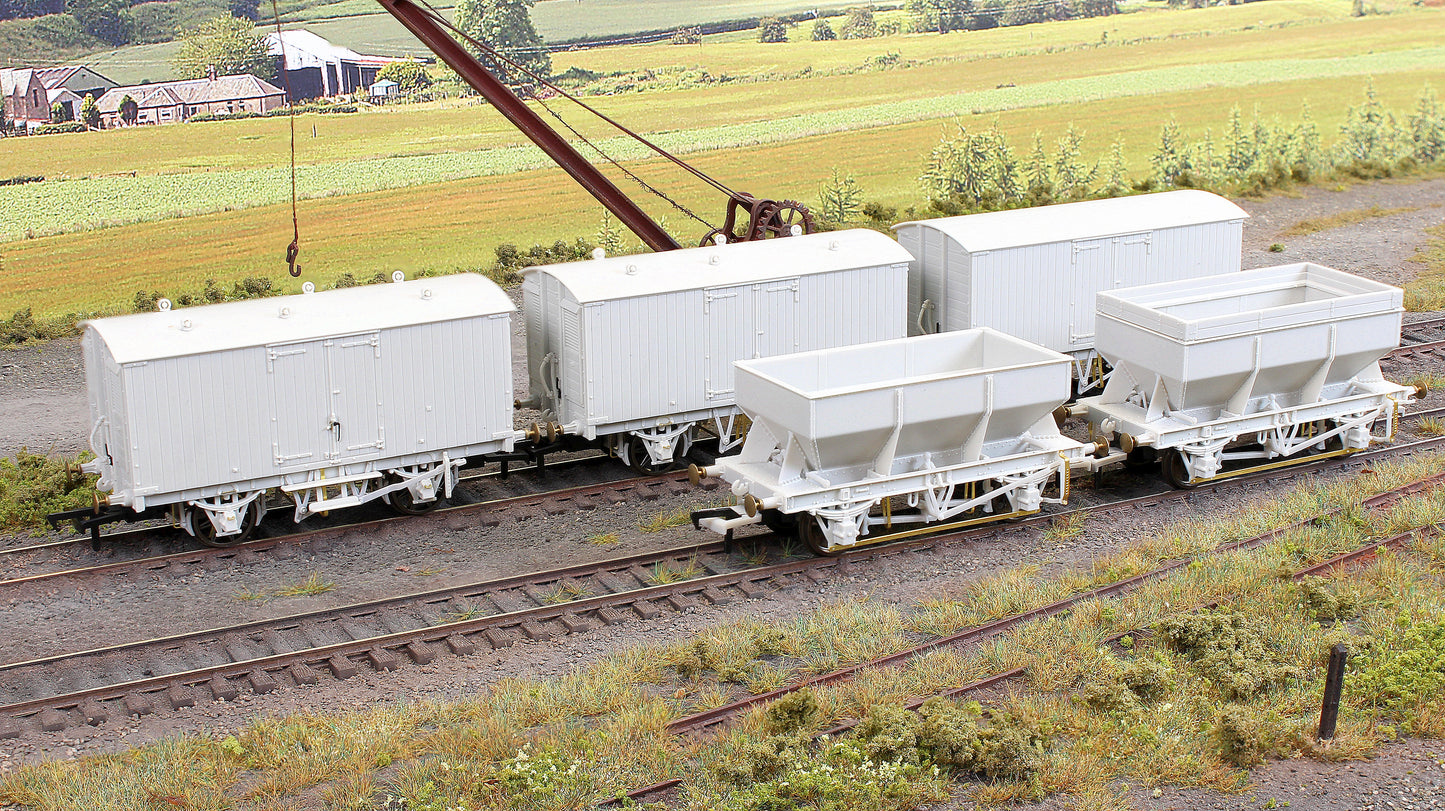Rapido Trains UK 930012 GNR 8 Ton Van - BR No.E408862




Product Details
| SKU | RAP-930012 |
|---|---|
| Vendor | Rapido Trains UK |
| Categories | Best selling products Era 4 HO-OO New products OO Gauge Rolling Stock OO Gauge scale OO Gauge Wagons & Freight Pre-Orders Rapido Trains UK Rapido Trains UK OO Gauge GNR 8-Ton Van Rolling Stock Wagons & Freight |
| Scale | OO Gauge |
| Share | |
| Features |
|
Product Description
Expected Delivery Q1 2026 (Subject to Change at Manufacturer's Discretion).
Designed and built by the Great Northern Railway the 8-Ton van was conceived as a multi-purposed express covered goods vehicle and was subsequently constructed in numerous variants to accommodate more specialised traffic.
Introduced in the early 1900s they were produced in 4 body styles, non-vented, end and roof vented, end-vent only, and roof-vent only versions. The vans were built on a conventional 10’ 0” wheelbase underframe, however, with a length of 22’ 5” over the buffers, and 19’ 0” length over headstocks they were quite lengthy. This made them Ideal for quickly transporting a larger number of perishables and goods across the GNR network and beyond.
In addition to the conventional goods traffic, specific versions were also built to transport meat, fruit, and other more hazardous materials. Conversions of 26 of the wagons took place between 1914 and 1916 to make them suitable for the carriage of explosives and gunpowder, and a further 49 were subsequently altered following the end of WW1 into insulated meat vans. Versions were also produced for the traffic of fruit, which included fitting shelves on the inside, and side steps for easier access. Our research shows these being used for regular services on the adjacent Great Eastern Railway, with Wisbech being a permanent destination marking on some vehicles, so perfect accompaniment for our J70.
The GNR works at Doncaster built these in their droves, and by 1941 the LNER showed a whopping 1739 vans still in service, 253 of which were assigned as fruit variants. Despite a large number of them being scrapped following WW2, just under half of them made it into nationalisation.
The last surviving example of the GNR 8-Ton Van, Engineering tool van E432764, had been lined up for preservation by the National Railway Museum, however, it was subsequently scrapped, thus consigning the diagram to the history books.
Our model will feature the usual wealth of detail, including varying end and roof vents, and stepped and unstepped versions. The models are also fitted with metal bearings that will help with smooth running and shunting.



